Civil Liberties, Civil Rights, Human Rights
Podcast: Play in new window | Download
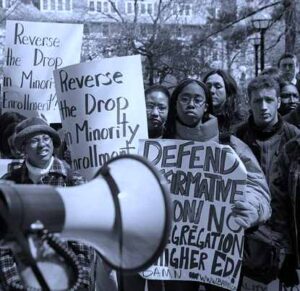
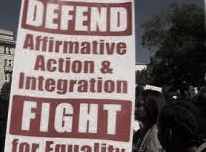
Supreme Court May Outlaw Affirmative Action
In 2003, the Supreme Court held in the case of Grutter v. Bollinger that the 14th Amendment allows public universities to consider race as a factor to assemble a diverse student body. The Court reaffirmed that holding in 2016. There are now two cases pending on the Court’s docket that it may well use to overrule Grutter and gut affirmative action. The Court will hear oral argument in these two cases on October 31.
The Students for Fair Admissions is suing Harvard and the University of North Carolina-Chapel Hill, asking the Court to overturn Grutter. The group says its mission is helping “to restore colorblind principles to our nation’s schools, colleges and universities.”
“Colorblind” is a euphemism for allowing the conditions that created the racial inequality and unequal opportunity to continue.
UNC-Chapel Hill, wrote education journalist Nick Anderson in the Washington Post, was “founded to educate the enslaving elite of this Southern state, allied for generations with the cause of white supremacy, roiled by racial tensions in recent years over the fate of a Confederate monument and treatment of Black faculty members.”
On October 4, the Court heard oral argument in Merrill v. Milligan, which the conservative majority will likely use to uphold Alabama’s racist gerrymandered district map. During the argument, Justice Ketanji Brown Jackson mentioned the “race-conscious” goal of the drafters of the 14th Amendment, who were “trying to ensure that people who had been discriminated against … were actually brought equal to everyone else in society.” “That’s not a race-neutral or race-blind idea,” Jackson said.
With the radical right-wing supermajority on the Supreme Court, it is likely that the Court will outlaw affirmative action, using the so-called “colorblind” rationale.
Guest – Jason Williamson is Executive Director of the Center on Race, Inequality, and the Law at New York University School of Law. He teaches a course in Social Justice Lawyering and runs the Racial Justice Clinic.
—-
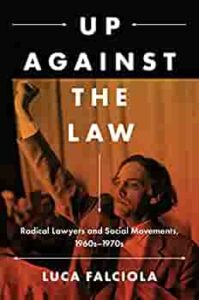

Up Against the Law: Radical Lawyers and Social Movements, 1960s-1970s
The 1960s and 1970s weren’t just the time when protesters took to the streets to fight for civil rights, and against the Vietnam War. It was also a period when radical lawyers defended dissidents and worked closely with them to bring their messages into the nation’s courtrooms and into the public sphere.
Luca Falciola has just published a book about the militant attorneys who fought for social change arm-in-arm with activists. Breaking from the traditional role of attorneys, they identified with their clients and their causes, and challenged the conservative rules and trappings of the legal profession. The book is titled Up Against the Law: Radical Lawyers and Social Movements, 1960s-1970s, published by the University of North Carolina Press.
At the heart of this work is the history of the National Lawyers Guild. Founded in 1937, the Guild was established as an alternative to the American Bar Association which was not racially integrated. Since Law & Disorder Radio began airing in 2005, its cohosts have been longtime Guild members and leaders. Many of our guests are Guild members as well.
Guest – Luca Falciola is a lecturer at Columbia University. His publications include the award-winning book about the Movement of 1977 in Italy, and several articles on various aspects of contentious politics between the 1960s and the 1980s.
Hosted by Attorneys Heidi Boghosian and Marjorie Cohn

—————————————
CIA Sponsored Terror, Civil Liberties, Civil Rights, Human Rights, Supreme Court, War Resister
Podcast: Play in new window | Download
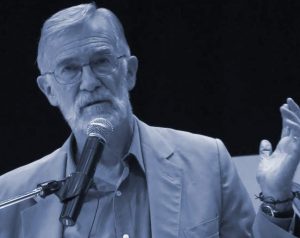
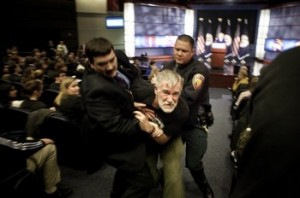
A Unified Movement of Peace
The world today is threatened with war, poverty, displacement and hunger like no other time since 1937 when World War II began with the Japanese invasion of China. Within four years the war had spread leading to the death of tens of millions of people. This included 50 million Russians, 400,000 Americans and finally hundreds of thousands of Japanese civilians in 1945 when the US initiated the nuclear age with the bombing of Hiroshima and Nagasaki demonstrating American power to the Russians. This initiated the Cold War which is now in a second stage. It must be stopped.
The American wars in Vietnam and Iraq were based on lies. We were told in 1965 by President Lyndon Johnson that the Vietnamese had attacked American ships in the Gulf of Tonkin. This was a lie. In 2003 we were lied to by President George W. Bush who told us that Saddam Hussein had weapons of mass destruction.
The proxy war in Ukraine against Russia is based on the ubiquitous lie that the Russians were unprovoked. It threatens to spin out of control. Why are we again in this situation and what can we do about it? What is desperately needed is a unified American peace movement.
Guest – Ray McGovern former CIA intelligence analyst, Ray briefed President George H. W. Bush every morning on intelligence matters, particularly with respect to Russia. He is a founder of VIPS, Veteran Intelligence Professionals for Sanity and a contributor to the blog Common Dreams.
—-

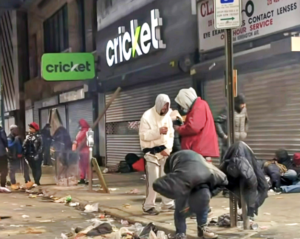
Doctors Lose Licenses For Properly Prescribing Opioids
The CDC wrongly thought pain management doctors were over prescribing opioids. The CDC issued guidelines in 2016 put limits on the amount of opioids doctors could prescribe thinking that high doses of Oxycontin lead to addiction and death. These guidelines were disastrous for chronic pain patients. Many were driven to buy illegal drugs on the street which were laced with poisonous fentanyl. In 2021 this led to 100,000 deaths in the United States.
Several insurance companies encouraged the CDC to impose limits on doctors prescribing Oxycontin and to taper their patients. Opioids are very expensive. The insurance companies were fortified in their erroneous belief by the efforts of a certain organization of doctors who are not pain management specialists.
When the CDC guidelines were exceeded, the Department of Justice threatened to indict doctors and got them to stop practicing medicine. The doctors gave up their medical licenses and licenses to prescribe narcotics. Some were prosecuted. Some went to prison. Some endured large fines. Seventeen hundred out of 6000 pain management doctors were removed from the practice of medicine.
Doctors who refused to taper were victimized. These doctors correctly believed that their patients were dependent on high dosages of opioids but were not drug addicts. These doctors understood that denying their patients high dosages of opioids would lead to suicides and deaths by overdose from street drugs.
The United States Supreme Court recently ruled in the case of The United States v Ruan that doctors have the right to treat their patients as they see fit without government interference, they ruled 9 to 0 that doctors who prescribed opioids in good faith did not have the requisite mindset, mens rea, to be found guilty of over prescribing.
Guest – Kelly Dineen Gillespie is a professor of law and the Director of the health law program at Creighton University School of Law. She teaches health law and bioethics. Dr. Gillespie holds a PhD in health care ethics as well as a law degree. Before attending law school she worked as a nurse in neurosurgery and transplant ICUs. She co-wrote two friend of the court briefs in the significant Ruan v United States case on behalf of professors of health law and policy before the US Supreme Court regarding criminal distribution under the Controlled Substance Act as applied to doctors‘ prescriptions. In June 2022, the Supreme Court adopted much of the reasoning advanced in these briefs in a unanimous decision supporting doctors.

————————————
Civil Liberties, Civil Rights, Human Rights, Supreme Court
Podcast: Play in new window | Download
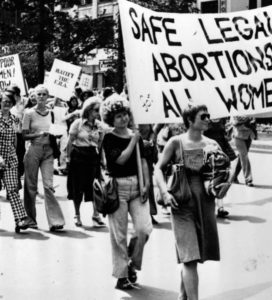

Analysis: States Respond To Overruling Of Roe v. Wade
Since June, when the right-wing majority of the U.S. Supreme Court overruled Roe v. Wade and retracted the constitutional right to abortion, many states have enacted onerous restrictions or outright bans on abortion. In states like California, the right to abortion has been safeguarded by legislation and judicial interpretations of the California Constitution. But if in the future, Republican governors in California appoint a majority of conservative “justices” to the state supreme court, the right to abortion will be imperiled.
On November 8, voters in three states – California, Michigan and Vermont – will decide whether to enshrine the right to abortion in their state constitutions. People in Kentucky will vote on an amendment that specifically excludes the right to abortion from constitutional protection. In August, Kansas voters rejected a similar amendment that would have explicitly said that its constitution does not provide the right to abortion.
Guest – Law and Disorder co-host and legal scholar Marjorie Cohn discusses why it’s crucial that states amend their constitutions to protect the right to abortion. Marjorie is professor emerita at Thomas Jefferson School of Law and former president of the National Lawyers Guild, who writes a regular column at Truthout called “Human Rights and Global Wrongs.” She has published several books and does political and legal media commentary for local, national and international media outlets.
—-


Attorney Deborah LaBelle: Planned Parenthood v. State of Michigan
Deborah LaBelle is a Michigan attorney and writer whose work centers on constitutional and civil rights in class actions and community representation utilizing a human rights framework. Ms. LaBelle has been lead counsel in over a dozen class action lawsuits that have successfully expanded the civil and constitutional rights of her clients in both federal and state courts, including before the U.S. Supreme Court and in international fora.
Ms. LaBelle has been the recipient of numerous awards, including the National Lawyers Guild’s Law for the People Award, the National Trial Lawyer of the Year Award from Public Justice Foundation, and the Federal Bar Association’s Wade McCree Jr. Award; Michigan ACLU Civil Libertarian of the Year Award; as well as several others too long to list here.
She is currently co-counsel (with me and others) on the Flint Water class action litigation – a case in which we successfully argued to the Michigan Supreme Court that our state constitution has embedded within it the fundamental due process right to bodily integrity.
What brings her here today, is Ms. LaBelle’s most recent involvement in the historic case of Planned Parenthood v. State of Michigan. This case was triggered by the nation-wide crisis created by the U.S. Supreme Court in its reversal of Roe v. Wade in Dobbs v. Jackson. Dobbs awoke a long-dormant 1931 felony statute in Michigan which criminalizes all medical and legal actions taken to support a person who seeks or needs an abortion. This month, in the Planned Parenthood case, the Michigan Court of Claims issued a historic state-wide injunction against that criminal law, holding that it violated the now-recognized Michigan constitutional right to bodily integrity. While this injunction is still in effect (and inevitably on its way to being appealed), we have seen another pro-choice victory in Michigan, that is, successfully getting Proposition 3, a constitutional amendment referendum, on the ballot that would explicitly recognize the constitutional right to abortion in Michigan.
Hosted by Attorneys Heidi Boghosian, Marjorie Cohn and Julie Hurwitz

——————————
Civil Liberties, Civil Rights, Crony Capitalism, Human Rights
Podcast: Play in new window | Download

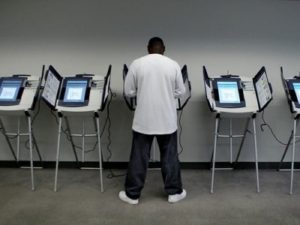
Chris Hedges: Social Change And Democracy 2022
You can’t have organized activity for social change without democracy. Social change and democracy are bound up with one another. But America is not a democracy. This is by design. It was never intended to be. The founding fathers – there were no founding mothers – wrote a document 245 years ago in Philadelphia that excluded more Americans than it included.
The Supreme Court ruled in the Citizens United case that corporations are people entitled to free speech rights. So they can give as much money as they want to political campaigns. Last month an industrialist gave $1.6 billion to the Republicans. Like Bob Dylan wrote, “money doesn’t talk it swears.“ It is impossible to have a democracy in a country like ours with such vast income and wealth disparity.
The Democratic Party and the Republican Party have a lock on the political process. It is nearly impossible to start a third-party. When Ralph Nader ran the Democrats did everything they could to stop him, launching many lawsuits trying to knock him off state ballots.
Since its founding, the ever-growing effects of unlimited money in elections, the partisan gerrymandering of legislative districts, the fraudulent removal of poor and minority voters from voter registration rolls, reduction in the number of voting locations in minority districts, the unfair advantage given to Canada is favored by corporate America, including America’s corporate media, all combine to leave us with a very unfair and very undemocratic system of governance in America
Guest – Chris Hedges, the most penetrating journalist we have. He once worked for the New York Times and even won a Pulitzer Prize. But he was forced out. He had a show on our RT which was closed down by our government and some 600 of his show “On Contact” were taken off of YouTube.
—-
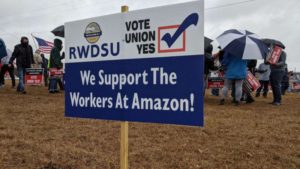
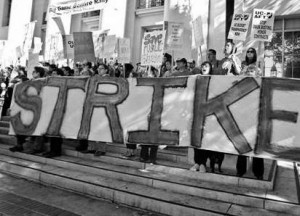
The State of Labor Unions And Recent Worker Strikes
For decades now only about 11% of workers in America have been members of unions, whereas previously more than 35% were union members. Various pieces of pro-management legislation and court opinions caused this diminution in union membership and, as a consequence, a weakening of the rights of American workers. But in recent years, as a result of militant fight back efforts by exploited workers in many industries, unions have once again been having some success in organizing efforts at various workplaces, like Amazon, Starbucks, Apple, and Trader Joe’s.
But federal and state laws still create an up-hill fight for those seeking to organize workers into unions, and to win good labor contracts. So today we ask: do these few but growing number of recent labor union victories truly represent a new day for American workers and the unions that serve them? Do these localized labor victories suggest that more and bigger victories for workers are now within reach? Or, have these recent victories been simply exceptions to the still dismal overall state of union organizing in America? Are either of the two capitalist political parties sufficiently committed to advancing the right of workers to organize unions, or is an independent political movement or party needed to make significant union/worker gains? And what about the pending threat of a nation-wide railway worker’s strike? And if the railroad companies and their workers cannot reach a negotiated settlement acceptable to the railway workers, could President Biden step in and use the Railway Labor Act in an effort to prevent a railway strike with its devastating consequences for the U.S. economy?
Guest – Alan Benjamin, long-time union organizer and workers’ advocate. A leader in his own union, he has served on the Executive Council of the San Francisco AFL-CIO Labor Council. He is also one of the principal organizers of the organization known as Labor and Community for an Independent Party, or LCIP.

—————————————-
Civil Liberties, Civil Rights, Death Penalty, Human Rights, Prison Industry, Violations of U.S. and International Law
Podcast: Play in new window | Download
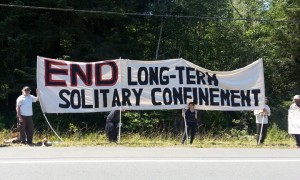
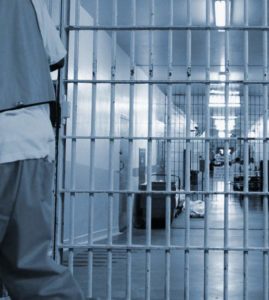
CCR And Others Issue Complaint Against U.S. Death By Incarceration
The United States condemns one out of every seven prisoners–or more than 200,000 people– to die in prison, over two-thirds of them people of color. “Death by Incarceration,” or DBI, includes extreme sentences such as life, and life without possibility of parole. DBI violates two treaties the U.S. has ratified, the Convention Against Torture and the Race Convention. DBI “is the devasting consequence of a cruel and racially discriminatory criminal legal system that is designed not to address harm, violence, and its root causes, but to satisfy the political pressure to be tough on crime,” according to a complaint filed with UN special rapporteurs on September 15.
Valerie Kiebala helped bring together organizations including the Center for Constitutional Rights, the Drop LWOP Coalition, and the Abolitionist Law Center, to file the 31-page complaint.
Related Article: Human Rights Groups Urge UN to Call for Abolition of Death by Incarceration by Marjorie Cohn.
Guest – Valerie Kiebala is a writer, organizer, and artist. She is the communications director for Straight Ahead, a nonprofit lobbying organization fighting for the human rights and liberation of incarcerated people. Valerie previously worked as an editorial manager and staff writer for Solitary Watch, a nonprofit organization documenting and exposing the use of solitary confinement across the U.S. Her work has appeared in the Root, the Appeal, Truthout, the Chicago Reporter, and Shadowproof.
—-

Fog Data Science: Constant Surveillance
Each time we access the internet, we open the door for companies to track our behavior and our location. This information is gathered and sold by data brokers, but not just for the purpose of helping marketers send us targeted ads. Our movement data is also marketed to law enforcement agencies around the nation. State sheriffs, highway patrol, and local police now can trace millions of Americans’ everyday movements dating back several years. One Virginia data broker contracts to sell telephone geolocation data to state and local law enforcement, according to an investigation by the Electronic Frontier Foundation, or EFF.
EFF Staff Technologist Bennett Cyphers led the investigation. He and his team found that Fog Data Science sells access to a database with information about where a person was at any point in time over the past several years. The surveillance isn’t limited to possible crime scenes. It includes homes, churches, workplaces, health clinics—places in which we have constitutionally-protected expectations of privacy.
Guest – Bennett Cyphers is a staff technologist on EFF’s Tech Projects team. He focuses on consumer privacy, competition, and state legislation. He also assists with development of Privacy Badger, a browser add-on that stops advertisers and trackers from secretly tracking your movements.
Hosted by Heidi Boghosian and Marjorie Cohn

——————————————
Civil Liberties, Civil Rights, Criminalizing Dissent, Human Rights, Violations of U.S. and International Law, War Resister, Whistleblowers
Podcast: Play in new window | Download

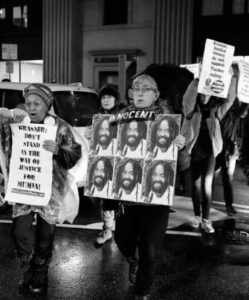

Mass Rally Mumia, Assange and Palestine in Berkeley, California September 17, 2022
Veteran socialist and organizer Jeff Mackler initiated a call for a mass rally on September 17, 2022 in Berkeley, California in support of Mumia Abu-Jamal, Julian Assange, and Palestinians. In 1982 radio journalist and Black Panther Mumia Abu -Jamal was wrongfully convicted and sentenced to death for murdering police officer Daniel Faulkner on a Philadelphia Street. He served 28 1/2 years on death row before his sentence was reduced to life in prison. Still in prison, he has served 40 years. An International movement has developed demanding “Free Mumia.”
Award winning Australian journalist and publisher Julian Assange sits in Belmarsh. a maximum security prison in London. In declining mental and physical health,he has been incarcerated for over 1000 days while he awaits extradition to the Northern District federal court in Virginia where he will be tried and certainly convicted of violating the espionage act of 1917. His crime: embarrassing United States by publishing true information about US wars in Iraq and Afghanistan and spying on the American public.
The Gaza Strip imprisons 1 million Palestinians. It is largest open air prison in the world. A month ago the Israeli military killed 49 people, 17 of them children, in military attacks. The weapons were made and supplied by America. North of the Gaza Strip in June in the Israeli militarily occupied territory of the West Bank an Israeli sniper assassinated the beloved veteran Al Jazeera journalist Shireen Abu Akleh who was covering an Israeli army incursion. She had been reporting on the situation of Palestinians In the West Bank for many years.
American ideology has it that our country is a force for good in the world. That it is a democratic society, that it promotes freedom and democracy abroad, and that at home it is a place where hard work leads to success. But the truth is quite different. These myths are increasingly being exposed for what they are.
Recognizing that free journalism is at stake a diverse group of organizations are sponsoring the September 17th mass rally In Berkeley. Mumia will speak via phone. Vincent de Stefano of the Assange Defense Committee will speak. So will Daniel Ellsberg, famous for his release of the Pentagon papers, Susan Schnall, President of Vets for Peace, Mama Pam of Friends of Mumia’s International Family, the great journalist Chris Hedges, Pulitzer Prize winning author Alice walker, and Jeff Mackler among others.
The slogan of the rally is Free Mumia! Free Julian! Free Palestine!
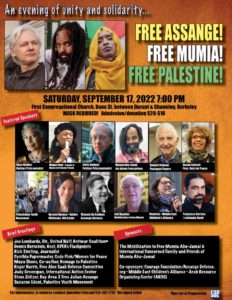
Guest – Jeff Mackler is a founder and leader of the United National Antiwar Coalition (UNAC), hey founder of the Northern California Climate Mobilization, and the national secretary of Socialist Action and it’s two time candidate for the US presidency.
—-
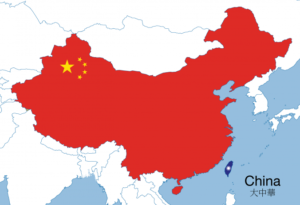

Analysis: The Taiwan-US Relationship And China
Trips to Taiwan, by Congressional leaders like Nancy Pelosi, followed up by trips to Taiwan by other members of Congress, has served to push the United States and China closer to a catastrophic conflict. Richard Becker, our guest for this topic today has written, “Pelosi’s decision raises the specter of all-out war between the two world powers. and the consequences of her actions remain to be seen.”
The Biden Administration, which obviously approved of Pelosi’s Taiwan visit, added fuel to the fire by deploying an aircraft carrier off the coast of Taiwan along with accompanying warships.
Pelosi’s argument that the U.S.-Taiwan relationship was based on a shared belief in “self-determination and self-government, democracy and freedom” is ridiculous. The U.S. and other colonial efforts to dismember Taiwan from the rest of China goes back to at least the 19th century. And at the end of World War Two, the U.S. government supported the Nationalist Party of dictator Chiang Kai-Shek in the civil war between his party and the ruling communist party of China; a war that Chiang lost. After Chiang lost that civil war he retreated to the Chinese island of Taiwan, where he ruled as a vicious dictator. Of course, he continued to receive with massive military and diplomatic support from the United States. And even after it was forced to abandon its absurd policy that Taiwan represented the legitimate government of China, the U.S. has maintained its de facto alliance with the regime in Taiwan. And China, which still claims Taiwan as a part of China, has not ruled out eventually bringing Taiwan back under mainland China’s governance, including with the use of force if need be.
Guest – Richard Becker a leader in the Party for Socialism and Liberation. He’s also the Western Regional Coordinator of the ANSWER Coalition, the coalition to end war and end racism; and Mr. Becker is the author of a number of books, including, Storming the Gates: How the Russian Revolution Changed the World, the book, Palestine: Israel and the U.S. Empire; and the book, The Myth of Democracy and the Rule of the Banks.

————————————-

























